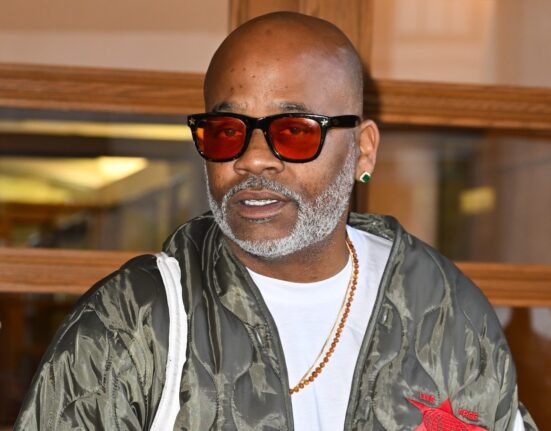Beijing Meishe Network Technology Co. repeatedly deceived the court by submitting false sworn statements that it independently developed the asserted code, TikTok said in a heavily-redacted motion for sanctions filed Monday in the US District Court for the Northern District of California. That story “unraveled at the close of fact discovery” when Meishe submitted an expert report, according to the redacting filing.
TikTok pressed a federal judge to throw out the lawsuit before a jury trial starts in four months. “Meishe’s evasions and falsehoods have made it impossible to discover the truth,” TikTok argued, noting valid ownership is even more significant in this case because Meishe asserts Chinese copyrights carrying no presumption of validity.
An attorney for Meishe didn’t immediately respond to a written request for comment.
Meishe filed copyright infringement and trade secret claims against TikTok in 2021, alleging a former engineer stole in 2015 protected code before going to work at TikTok. The code covers video- and audio-editing technology allegedly used by TikTok after the engineer became an audio and video director there in 2017.
The parties endured numerous battles in discovery, including one where the court ordered TikTok to turn over source code, financial data, and usage data detailing the foreign distribution of its applications.
TikTok’s motion says it sought discovery into Meishe’s relationship with partial owner China Digital Video (Beijing) Limited, referred to as XAT, after finding public securities filings suggesting that the Meishe app utilizes editing technology from XAT’s Dunhuang app.
Meishe actively concealed information about the relationship until after discovery closed, TikTok says, depriving the company of a chance to ask about case-critical issues—the ownership, viability, and enforceability of the asserted copyrights and trade secrets.
Meishe’s apex witnesses have “demonstrated a willingness to testify falsely,” TikTok said, noting that its chief technology officer admitted his sworn statement that Dunhuang source code wasn’t used in developing the Meishe app “was not accurate.”
TikTok argues termination is warranted because courts have tossed cases for lesser misdeeds.
If the case isn’t terminated, TikTok said the court should at least issue evidentiary sanctions barring Meishe from presenting evidence not disclosed in discovery and requiring the company to admit its asserted code was unlawfully copied.
Cherian LLP represents Meishe. White & Case LLP and Covington & Burling LLP represent TikTok.
The case is Beijing Meishe Network Tech. Co. Ltd. v. TikTok Inc., N.D. Cal., No. 23-cv-06012, motion for sanctions filed 6/16/25.







